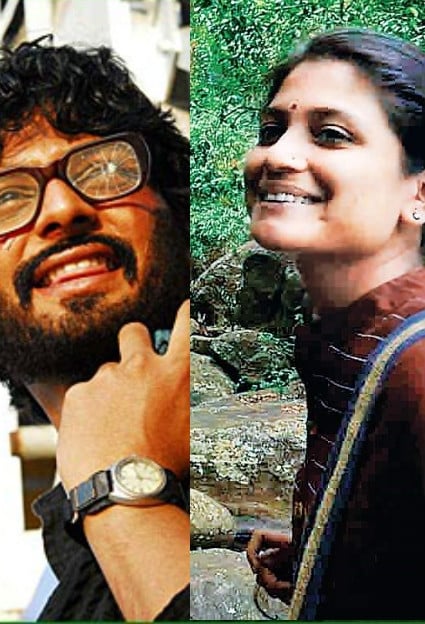Kattradhu Thamizh, Aruvi and the outburst of existentialism
Home > Visitor Columns

Behindwoods.com isn't responsible for the views expressed by the visitor in this column. The visitor claims that this column is his/her own. If the column infringes any copyrights that you hold, please email us at columns@behindwoods.com.
Dictionary meaning - existentialism:
ɛɡzɪˈstɛnʃ(ə)lɪz(ə)m/
noun
a philosophical theory or approach which emphasizes the existence of the individual person as a free and responsible agent determining their own development through acts of the will.
My objective is to compare the similarities and dissimilarities between the two crowd-and-critic pleasing films by analysing the basic coinciding philosophies underlying in the two films, I just happened to have noticed few resemblances in the explosive-yet-colloquial style of storytelling and character development. (I'm an engineering student, pardon me for starting with 'Objective', I promise 'Materials Required' will not follow).
Tamil Cinema has seen a lot of socio-political dramas but very few have managed to cater to all sets of audiences, either the drama overpowers the narration or the social issue becomes the prime driving point, or if both are balanced, we are forced to see the hero preaching to us. So, what makes Aruvi and Kattradhu Thamizh stand out on the list? I believe it's their simple and empathetic protagonists that most of us would've seen or heard of in our everyday lives.
Aruvi (Aditi Balan) a normal middle-class girl trying to fit into the urban society and Prabhakaran (Jiiva), a Tamil MA graduate trying to find himself a job. It's interesting to notice that the problems that crop up in their lives are mostly situations they're hardly in control of. The characters are in their respective comfort zones at the beginning of the films, followed by few inevitable situations which force them to come out of their shell and go on a journey seeking for revenge and "redemption" that ends up changing their lives forever.
That's a basic structure of almost all the films, you may argue. It's the simple three-act structure. But what makes Aruvi's and Prabhakaran's intriguing journeys is that they're out for revenge not against a moustache-twirling individual who only does evil, but the society that accommodates both good and bad, as well as their unfortunate situations - by unfortunate, I mean they didn't commit any sin as such to fall prey to the situations they're forced into, which almost happen like they were bound to happen to them. They're mere puppets of the situation, the strings being in the hands of fate and partially the society.
Followed by these unfortunate inciting incidents, Aruvi and Prabhakaran start to feel dejected by the society and start to isolate themselves, perceiving themselves as an alien entity. The society doesn't bother to drag them to their lap and comfort them either, except a few characters who they discover in their paths.
There's this sense of growing nihilism in the two characters as they start brooding over their poignant predicament. It's interesting to note a shade of Dostoevsky's protagonists in both the characters (who are mostly existentialists or nihilists) - we also see Aruvi reading a book of his sitting on the rocks with Emily.
Aruvi and Prabhakaran's rage against the society slips over the threshold and they decide to lash out at the society, starting to seek attention and validation for their mostly immoral actions. Prabhakaran does this by kidnapping Yuvaan-Suang (Karunas) while Aruvi does it by featuring herself on a reality show. In both the cases, they start out by being harsh on their listeners but as time passes, the listeners start to empathize with the characters as their true selves take over the shadow self, to start rationalising the protagonist's decisions. Yuvaan-Suang denies the money that Prabhakaran offers for recording the video, and the people on the game show start dancing and playing with Aruvi.
The two films follow a similar trajectory leading to two different destinations which are actually foreshadowed at some point earlier in the films (I'll let you find that out for yourself). It's also interesting to notice that the two directors have been mentored by the late legendary director Balu Mahendra, whose films subtly juxtapose philosophy with simplistic drama.
'What makes life worth living?' is the question that pushes the two characters onto their journey for redemption, in which both of them find their own answers in their respective worlds to a question that plenty of philosophers and writers have pondered over their own journey - the very journey that unites us all.
pranavradee@gmail.com
Please send your column to columns@behindwoods.com.



